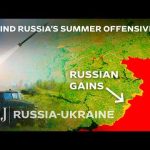In recent days, the political landscape has shifted dramatically, as a press conference announced severe tariffs against Russia if a ceasefire in Ukraine is not reached within the next fifty days. The President has made it clear that he intends to send weapons to Ukraine, facilitated through NATO. This decision raises immediate questions about the moral and practical implications of such actions. As nations grapple with the complexities of international conflict, it is essential to reflect on the lessons of history and the values that should guide our responses.
The ongoing conflict between Russia and Ukraine is a stark reminder of past conflicts that have shaped our world. These events teach us that wars often bring profound suffering, leading many to question the true costs of military intervention. The President’s decision to support Ukraine reflects a desire for strength and resolution, much like leaders who faced the darker moments of history, from World War II to the Cold War. However, each choice carries weighty ramifications, and the notion of sending arms as a solution paints a troubling picture of potential escalation.
Critics of the current administration may see this as a pathway to war, mirroring fears that have echoed through political discourse for generations. Yet, at the heart of the President’s approach appears to be a desire to foster peace rather than engage in further conflict. This duality reflects a classic tension in foreign policy: the balance between diplomacy and military action. History shows that genuine peace often arises from strong negotiation rather than the mere threat of force.
Personal stories abound from individuals who have been directly affected by conflicts around the globe. They remind us that behind every political decision rests a human life, a family torn apart, or a community struggling to survive. As we consider recent events, it is crucial to remember these voices and to approach international dealings with empathy. The President’s tough stance on Russia may be designed to instigate pressure for negotiation, yet it is essential to question whether the use of tariffs and arms truly serves peace or merely prolongs the conflict and its associated hardships.
Furthermore, the dialogue surrounding issues like the Russia-Ukraine conflict is often skewed by political motives, pushing us into a paradigm of partisan hostility rather than collaborative discourse. The recent press conference, instead of being a unifying call for action, has spurred debates about the accountability of past administrations and the paths they set forth. Such reflections are not merely an exercise in blame but a chance to critically assess how our leaders shape our world. As citizens, it is incumbent upon us to engage in this narrative and consider how our understanding of history informs our expectations of our leaders in crisis.
Finally, grappling with the complexities of global politics requires us to reflect on our moral compass. Are we leaning towards a path that prioritizes open dialogue and understanding, or are we falling back into cycles of conflict fueled by temporary solutions? The President’s tough rhetoric may be influential, but it is imperative to seek paths that prioritize humanitarian values and long-term resolutions over immediate reactiveness. As current events unfold, the hope remains that a future defined by diplomacy and understanding will prevail over the weight of historical patterns that often lead us to conflict.




